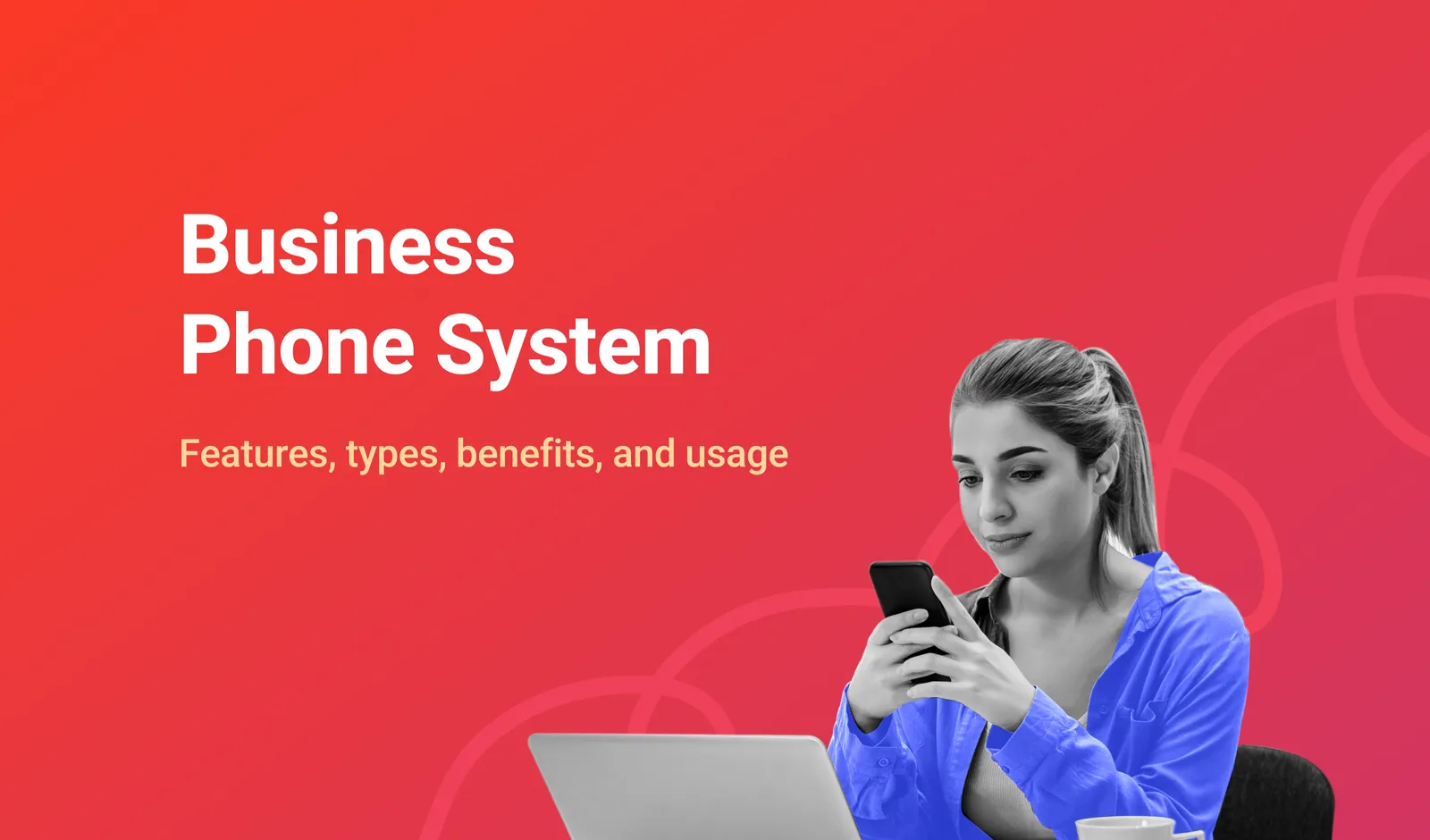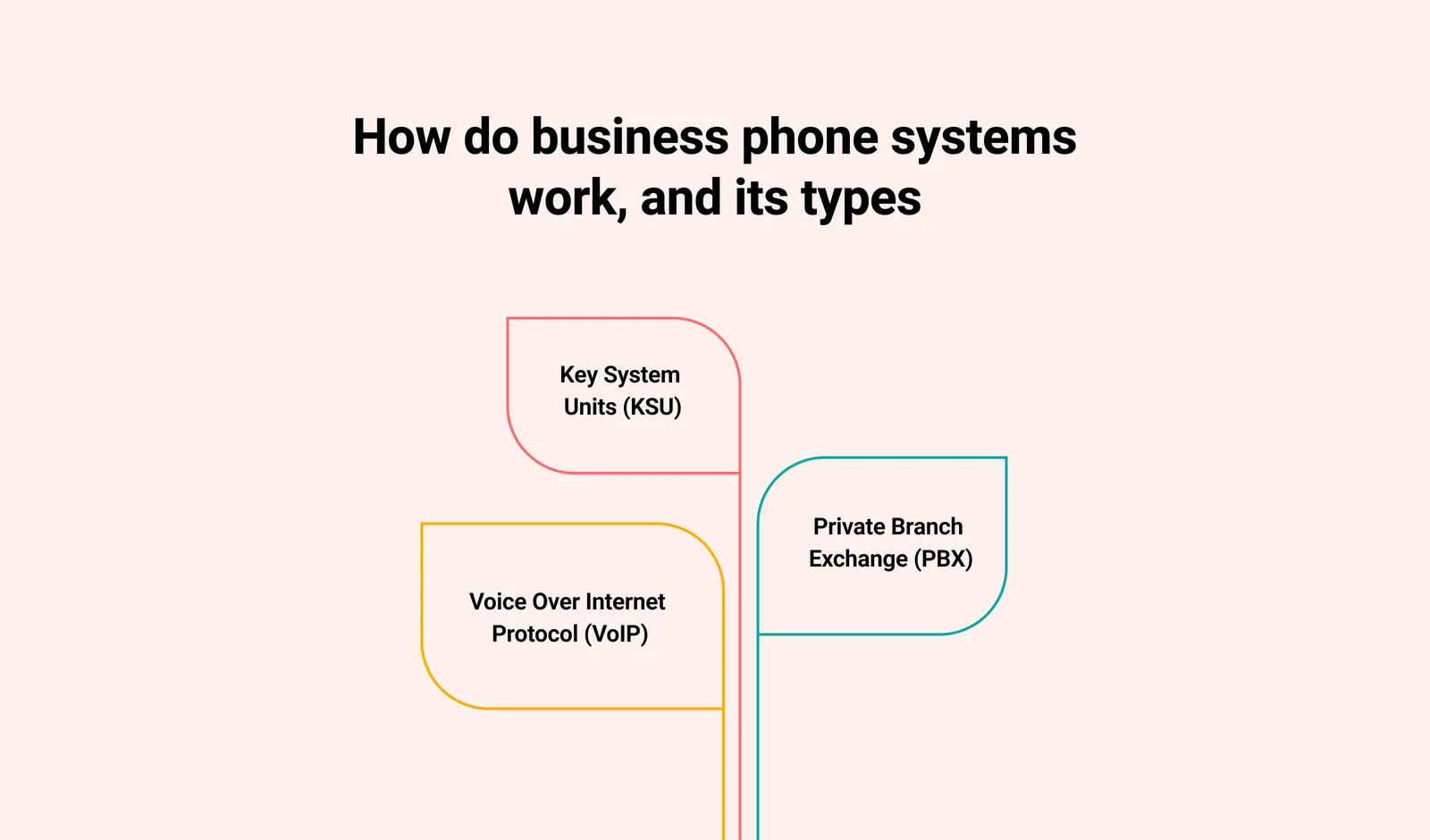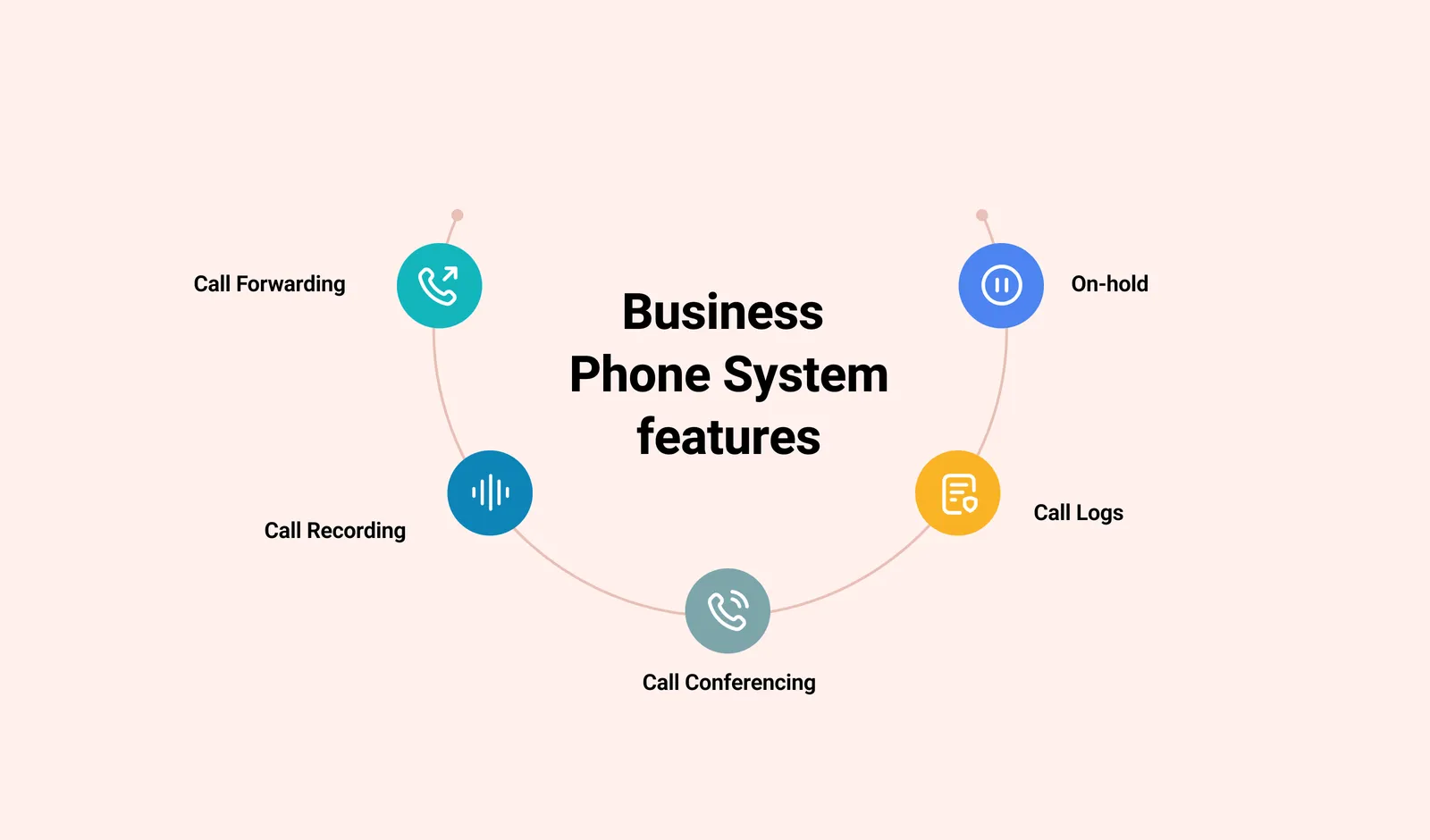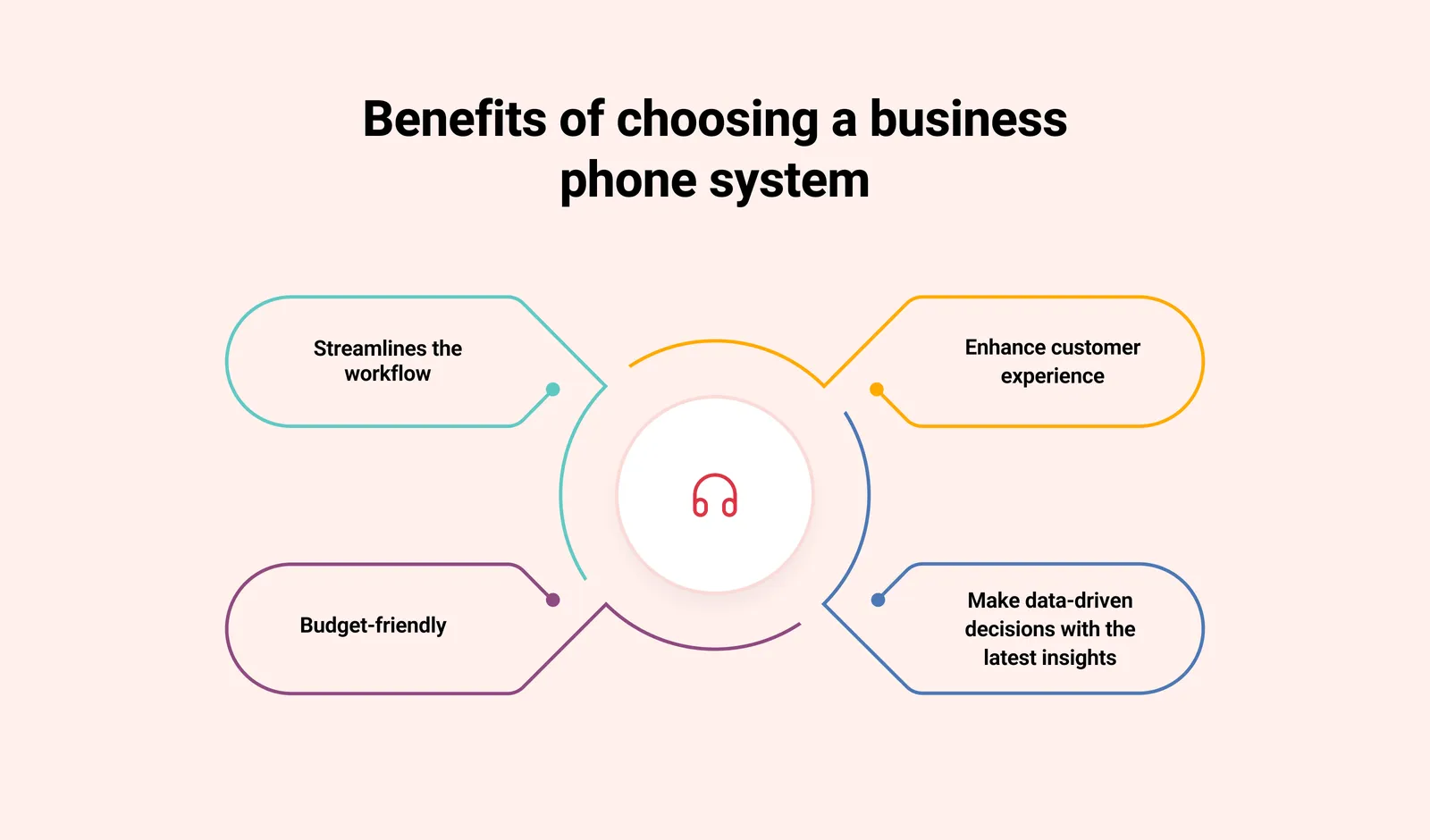Business Phone System: Features, Types, Benefits, and Usage

Customer communication is critical for every business, regardless of size. In the present era, it has become an easy and efficient way to reach companies and customers through various modes such as social media, emails, webchats, etc., and calls. However, it is crucial for businesses to get a unified communication platform to engage customers promptly. Business Phone Systems are an excellent solution to address this.
A statistic says that 60% of companies believe phone systems and live agents are their most important investments. In this case, it is a good option to invest in Business Phone Systems, which can enhance customer experience and also increase your agent’s productivity.
What is a Business Phone System?
A Business Phone System is a telecommunication channel that is used to make, receive, and manage customer interactions with businesses. In addition to customer communications, it allows speaking with the internal team and colleagues. This is a general definition of business phone systems.
There have been different types of business phone systems from the day they emerged to the present period. These phone systems will have multiple phone lines, a call forwarding option, automated answering, an on-hold call queueing facility, call conferencing, etc.
Businesses will be able to manage the calls based on the type of Business Phone System. Few business systems will operate over the Internet to engage customers, while others deal with traditional wires and cable lines to interact with them.
How do Business Phone Systems work, and its type

There are several different business phone systems available in the market, which businesses should carefully choose from. The primary motto of these systems is to offer a simplified way to communicate within the organization and with the customers in the best way.
Here are the three major types of Business Phone Systems in the market:
- Key System Units (KSU)
Key System Units are the most basic business phone systems. These phones are excellent options for small businesses since they limit the number of phone lines to be installed. They are not portable; hence, employees must be strictly available on the office premises to pick up calls for communication. These systems use a central switching device called KSU; this will determine the phone-line selection manually. The only disadvantage is that it allows only a limited number of users and cannot be sold commercially. However, they are easy to use as home telephones.
A person can simply pick up the phone and dial the number to place a call. KSU phones come with essential features such as on-hold, speakerphone, and intercom capabilities. These landline-based phone systems will require on-site hardware installation, setup, and maintenance, which can be expensive and time-consuming compared to the other phone systems. Hence, only a minimal number of modern businesses use them.
- Private Branch Exchange (PBX)
Private Branch Exchange phones are complex but advanced phone systems when compared to KSU business phones. These phones are applicable to a company of any size since most of the calling options are automated. They also work with an uninterrupted power supply where there is no downtime or shortages. Its centralized nature makes it simple to make and receive calls, and is known for reliability.
PBX systems can be either hosted in the cloud or installed on-premises. In the On-premises PBX, the upfront installation cost will be higher when compared to the present ongoing costs. Also, the IT team in the organization must take care of the maintenance process. On the other hand, hosted PBX refers to a system based on the cloud. You can simply sign up for the service online, buy and install them, and make subscriptions based on the usage. The plan includes maintenance and troubleshooting altogether.
- Voice Over Internet Protocol (VoIP)
VoIP systems are closely linked to cloud-based PBX systems. Simply put, they use the internet to make and receive calls; the technology converts the conversation into a compressed signal, which is then transmitted through the broadband network. Moreover, VoIP technology allows businesses to experience a unified communication as a service (UCaaS) model as it integrates multiple platforms, and businesses can communicate with customers from different channels without switching to applications repeatedly.
It includes texting, chatting, emails, social media, CRM, video conferencing, virtual faxing, and much more. In this internet era, it is crucial for businesses to engage customers in different channels apart from traditional calling strategies. VoIP paves the way to help businesses in getting touch with customers easier.
DO YOU KNOW?
|
Business Phone System Features you should know:

Let us discuss the basic features which are present in any Business Phone System:
- Call Forwarding
As the name suggests, the Call Forwarding feature allows businesses to forward the call to the respective team or agents without the customer’s knowledge and based on the customer's query. This feature is available in all types of business phone systems.
- Call Recording
Businesses can record customer calls and use them for future purposes. Additionally, they can keep track of their agent’s performance and offer them the required training to rectify their mistakes as well as know the reasons for unsatisfied customers.
- Call Conferencing
Businesses can make use of the Call Conferencing feature to allow multiple agents or employees to join a call with just one line. Hence, this can be an excellent option if businesses need to connect with teams from multiple branches.
- Call Logs
A phone system will record important details such as date, time, caller ID, duration of the call, etc. It also provides information on missed calls, answered calls, and dialed calls along with the caller ID.
- On-hold
Announcements or Greetings can be provided to your customers when they are waiting to speak with the agent. Instead of listening to the annoying ringing sound, a customizable greeting can be kept when they are put on hold.
Benefits of choosing a Business Phone System:

One should know what type of Business phone system is right for your business and enjoy the benefits of it. Here are a few of them on the list:
- Streamlines the workflow
Business phone systems simplify customer communication to a greater extent. For instance, most business phone services offer different kinds of routing facilities that can redirect the call to relevant staff by saving both agent and customer time. This is a win-win situation.
- Budget-friendly
A business can save both money and time together with a Business Phone System. In particular, when you switch to a VoIP phone system, you can save a huge amount as you don’t need to spend expensively for on-premise installation setup and maintenance charges. The only thing is you should know how to set up a business phone system and get started with it.
- Enhance customer experience
Undoubtedly, they deliver a great customer experience. Be it a business of any size, a phone system will make it easy to interact with customers and help businesses resolve their queries in minutes. This, in turn, provides rich customer service.
- Make data-driven decisions with the latest insights
With the available data, such as from the call recordings, you can make data-driven decisions for the future. You can analyze with call analytics, know the performance, and make the respective decisions for improving your business.
Conclusion:
You can secure your business future by switching to a business phone system that meets your requirements. Presently, cloud-based VoIP solutions are found to be beneficial by most of businesses as they are cost-effective and easy to set up. Moreover, VoIP providers offering those services also provide it with advanced features to gain new customers and retain existing customers. Switch to a business phone system to grow your company to greater heights!